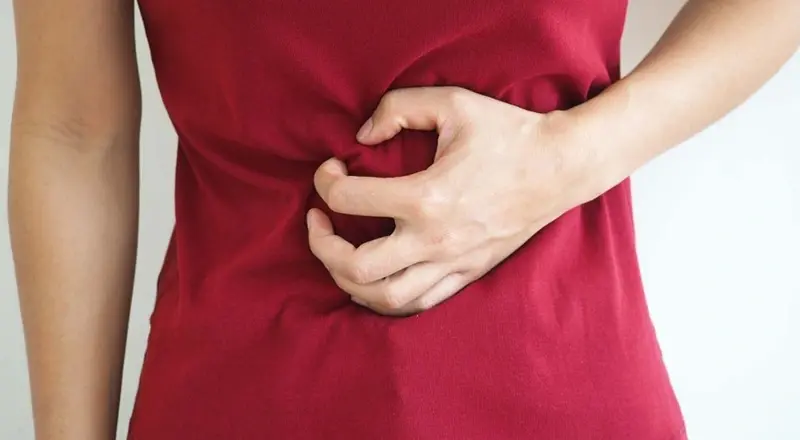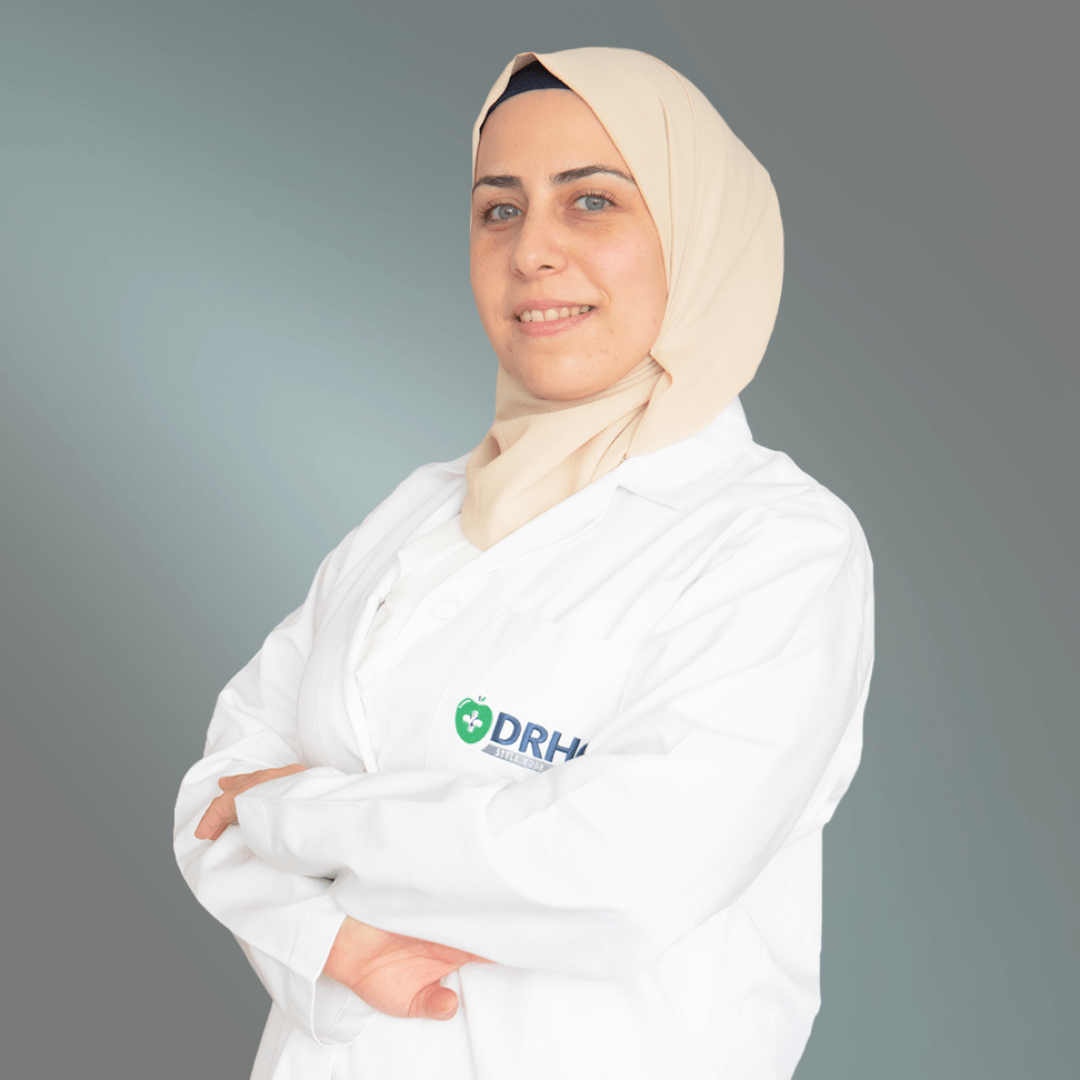Solitary Rectal Ulcer Syndrome (SRUS) Treatment at DRHC Dubai
Solitary Rectal Ulcer Syndrome (SRUS) is a rare but chronic condition that affects the rectum, leading to the development of single or multiple ulcers. While the name suggests a solitary ulcer, patients may have more than one ulcer or area of inflammation. SRUS can cause discomfort, difficulty during bowel movements, and other symptoms that impact daily life. At DRHC Dubai, our team of specialists provides advanced diagnostic tools and tailored treatments to effectively manage SRUS and improve patients quality of life.
Causes of Solitary Rectal Ulcer Syndrome
SRUS is often caused by factors that result in chronic straining or pressure on the rectal area.
Common causes include:
- Chronic Constipation: Repeated straining during bowel movements increases pressure on the rectum, leading to ulcer formation.
- Rectal Prolapse: When part of the rectal lining protrudes from the anus, it can lead to injury and ulceration.
- Dyssynergic Defecation: This condition involves uncoordinated muscle activity during bowel movements, contributing to excessive pressure on the rectal wall.
- Habitual Straining: The frequent urge to strain even when stools are soft can result in trauma to the rectal lining, causing ulcers over time.
- Rectal Trauma: In rare cases, trauma to the rectum from medical procedures or injuries can trigger the formation of ulcers.
Symptoms of Solitary Rectal Ulcer Syndrome
The symptoms of SRUS can vary depending on the severity of the condition, but often include:
- Rectal Bleeding: Blood in the stool or on toilet paper is a common symptom due to the presence of ulcers.
- Chronic Constipation: Difficulty passing stools or the need for excessive straining is frequently seen in patients with SRUS.
- Pain and Discomfort: Patients may experience rectal pain or discomfort, especially during or after bowel movements.
- Mucus Discharge: Excess mucus from the rectum is often observed, which can be uncomfortable or embarrassing.
- Feeling of Incomplete Evacuation: A persistent sensation that the bowels have not fully emptied after defecation.
- Rectal Prolapse: In some cases, patients may experience a partial rectal prolapse where the rectal tissue protrudes from the anus.
Diagnosis of Solitary Rectal Ulcer Syndrome at DRHC Dubai
At DRHC Dubai, diagnosing SRUS involves a comprehensive evaluation to determine the underlying cause and extent of the condition. Diagnostic tools include:
- Medical History and Physical Examination: The doctor will assess symptoms and perform a rectal examination to detect any visible ulcers or prolapse.
- Sigmoidoscopy or Colonoscopy: These procedures allow the doctor to view the inside of the rectum and colon, confirming the presence of ulcers and ruling out other conditions such as inflammatory bowel disease (IBD) or cancer.
- Biopsy: During a colonoscopy, a small tissue sample from the ulcer may be taken for biopsy to ensure an accurate diagnosis and rule out malignancy.
- Anorectal Manometry: This test measures the strength and function of the muscles involved in defecation, helping to detect issues like dyssynergic defecation.
- Defecography: A specialized imaging test that evaluates how the rectum functions during bowel movements, particularly useful in cases involving rectal prolapse.
Treatment Options for Solitary Rectal Ulcer Syndrome
Treatment for SRUS at DRHC Dubai is tailored to each patient based on the severity of the condition and its underlying cause. Treatment options include:
1. Lifestyle and Dietary Modifications
For mild to moderate cases, lifestyle changes can greatly improve symptoms:
- High-Fiber Diet: Increasing dietary fiber intake can help soften stools, making bowel movements easier and reducing straining.
- Adequate Hydration: Drinking plenty of fluids helps to prevent constipation and reduces the need for straining.
- Avoiding Excessive Straining: Patients are advised to avoid straining during bowel movements, which can further irritate the rectal lining and worsen ulcers.
2. Biofeedback Therapy
Biofeedback is a specialized therapy that helps patients improve muscle coordination and relax the pelvic floor during bowel movements. This non-invasive treatment can be especially effective for patients with dyssynergic defecation or chronic constipation, teaching them how to reduce pressure on the rectum.
3. Medications
Medications can be used to treat symptoms and promote healing of the ulcers:
- Topical Steroids or Sucralfate: These medications can be applied directly to the ulcer to reduce inflammation and promote healing.
- Laxatives: Stool softeners or mild laxatives may be recommended to prevent constipation and reduce straining during bowel movements.
- Botulinum Toxin (Botox): In some cases, Botox injections can help relax the muscles around the rectum, easing defecation and reducing the risk of trauma to the area.
4. Surgical Treatment
For patients with severe SRUS or those who do not respond to conservative treatments, surgery may be necessary:
- Rectopexy: This surgical procedure is performed to correct rectal prolapse, repositioning the rectum and preventing further ulceration.
- Ulcer Excision: In some cases, the ulcer may be surgically removed, especially if it is causing persistent symptoms or complications.
- Stapled Transanal Rectal Resection (STARR): This minimally invasive procedure is designed to correct rectal prolapse and improve defecation by removing excess rectal tissue.
5. Treatment of Underlying Conditions
If SRUS is linked to an underlying condition, such as rectal prolapse or chronic constipation, addressing the root cause is essential for long-term symptom relief. This may involve further medical or surgical interventions aimed at treating the contributing condition.
Recovery and Follow-Up Care
After treatment for SRUS, ongoing care and management are crucial to prevent recurrence and ensure long-term relief:
- Regular Monitoring: Follow-up appointments to monitor healing and ensure that symptoms do not return.
- Continued Lifestyle Adjustments: Maintaining a high-fiber diet, staying hydrated, and practicing proper bowel habits can help prevent future ulcers.
- Pelvic Floor Therapy: For some patients, continued pelvic floor exercises or biofeedback therapy may be recommended to promote proper bowel function.
Why Choose DRHC Dubai for Solitary Rectal Ulcer Syndrome Treatment?
- Expertise in Colorectal Care: Our team of highly experienced colorectal specialists provides the most advanced and effective treatments for SRUS.
- State-of-the-Art Diagnostic Tools: At DRHC Dubai, we utilize the latest technology to ensure accurate diagnosis and treatment planning.
- Comprehensive, Patient-Centered Care: Our approach focuses on the individual needs of each patient, with customized treatment plans that address both symptoms and underlying causes.
- Commitment to Long-Term Health: We emphasize preventive care and lifestyle adjustments to help patients manage their condition and avoid recurrence.
*Click here for Proctology Surgery Packages*
.png?width=280&height=59&name=bookanappointment%20(1).png)
The proctologist at the proctology clinic at our center provides the best diagnosis of hemorrhoids, hemorrhoid treatment, hemorrhoidectomy, and Laser Surgery for hemorrhoids. Call us at DRHC to book your appointment at +97142798200.




.png?width=280&height=59&name=bookanappointment%20(1).png)
.webp?width=1080&height=1080&name=Doctor%20background%20For%20Website%20Dr.%20Fadi%20Nageeb%2009%20(1).webp)
.webp?width=1080&height=1080&name=Doctor%20background%20For%20Website%20Dr%20Abdul%20Majeed%20Khalid%20%2002%20(1).webp)




